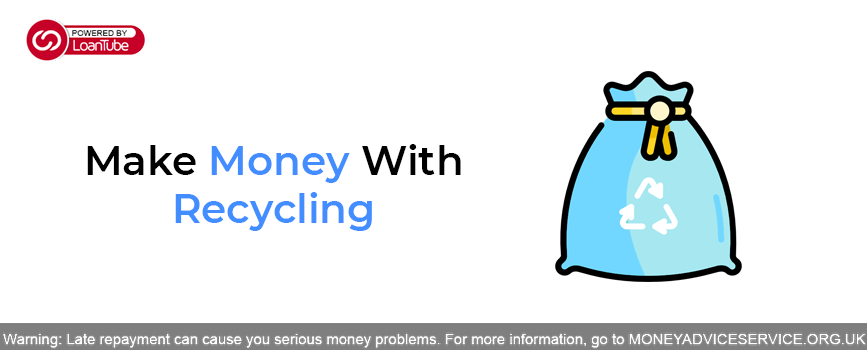Reducing and recycling is usually thought of in connection with minimizing carbon footprints and promoting sustainability. While switching to green living is a great way to do your bit for the environment, it is natural to want to save money in this noble pursuit.
Going green is extremely practical, and that’s one of its best features. Making smart, eco-friendly decisions requires no science degree or extensive resources. A few simple changes will help you save money and reduce your consumption.
Read on to find out how you can save money by going green.
Save money by recycling: 9 tips to help you go green
Here are 9 super tips to help you save money while you do your bit for the environment.
Recycling your old clothes
Do you know that about 336,000 tonnes of unwanted clothing are discarded by Brits every year? You can make something wonderful and new out of old clothes, curtains, tea towels, or bed linen. Make something new by turning them into clothing, cushion covers, bags, phone cases, etc. Your creativity could result in something artistic and unique. Repurposing worn-out clothes can even make them usable again.
Go thrift shopping for used clothes
Think about buying second-hand items rather than brand new to expand your wardrobe. This is a great idea because you’ll save money, and charities are able to receive some amazing donations. There is a lot to find if you like rummaging. You can find good deals on eBay as well – some charities sell there as well. If you prefer to stay safe and do not have the time to browse in charity shops, you can find bargains on eBay.
Give used grocery bags a purpose
Make sure all your shopping and grocery bags are reused. These bags can be used indoors for litter bins instead of buying single-purpose bags. Besides being useful for laundry when travelling, you can also scoop out pet litter from a litter tray, collect litter at picnics, wrap up sick in the car, and protect muddy shoes. You can use it for so many different things!
Plant your own organic vegetables
Despite how hard it sounds, it can be done! Fresh, organic vegetables – straight out of your mini-garden to your plate. Green salads, green beans, berries, and cherry tomatoes are easy to grow on your own to save money. It is also relatively inexpensive to grow herbs on your windowsill because no garden is necessary.
Make your compost at home
Kitchen waste is something we all produce. We tend to throw food scraps into the rubbish bin, but you are missing out on a great opportunity: food scraps can be made into nutrient-rich compost for your garden, which saves you money on other products.
Go paperless: switch to e-bills and e-statements
Nowadays, most banks and utility companies (including water, electricity, and gas suppliers) offer online billing and other communications rather than mailing. As well as saving the environment by using less paper, switching to online-only communication may also save you money in some cases.
There are some companies that charge an additional fee for paper bills – up to £3 per bill. In other words, as long as you’re not on a specific plan or require alternative formats like Braille, you can switch to e-billing. The ‘go paperless’ option is usually accessible through your provider’s website in the account settings.
Recycling and reusing old gift wraps
In a given year, you go through a lot of wrapping paper, boxes and bows. Throughout the year, there are numerous small holidays like Christmas, birthdays, and anniversaries. In addition, you can save money by neatly folding and saving what’s usable of the wrapping paper, rather than throwing everything away in the garbage.
Pre-plan your meals before purchasing grocery
Trying to plan your meals in advance can help you reduce the amount of food you waste by not eating everything you buy each week. You can avoid buying food you won’t consume if you plan ahead. Additionally, you save fuel by planning your grocery stores or local markets. A win-win!
Switch to rechargeable batteries
It is more cost-effective to use rechargeable batteries. The good news is that you can successfully utilize them hundreds or even thousands of times when properly used! Investing in this system is a smart move that will surely pay off in the long run.
Besides the material benefits, many people don’t realize that rechargeable batteries are less hazardous to the environment than the normal ones because they emit less carbon dioxide, air pollution, acidification, and water pollution! Batteries that aren’t rechargeable should not be placed in landfills. The chemicals in the container can leak into the soil and groundwater.
Conclusion
Always give something a second thought before you throw it away. It’s possible to extend its lifespan or find another way to make money from it, such as recycling. Think about our environment’s health to save money and use your creativity.
You can use the internet to find out where the nearest recycling centres are in your neighbourhood and start using them in your spare time.


